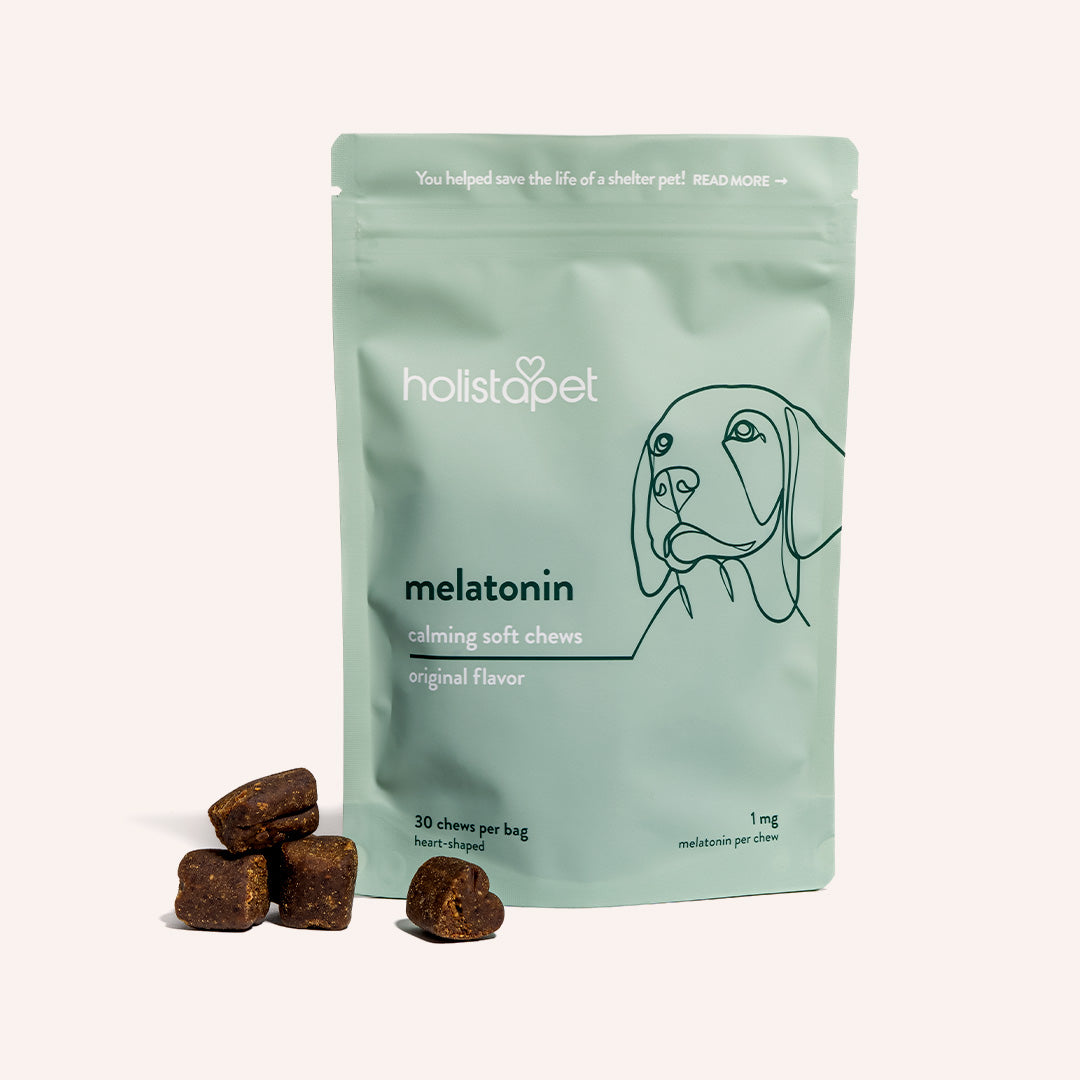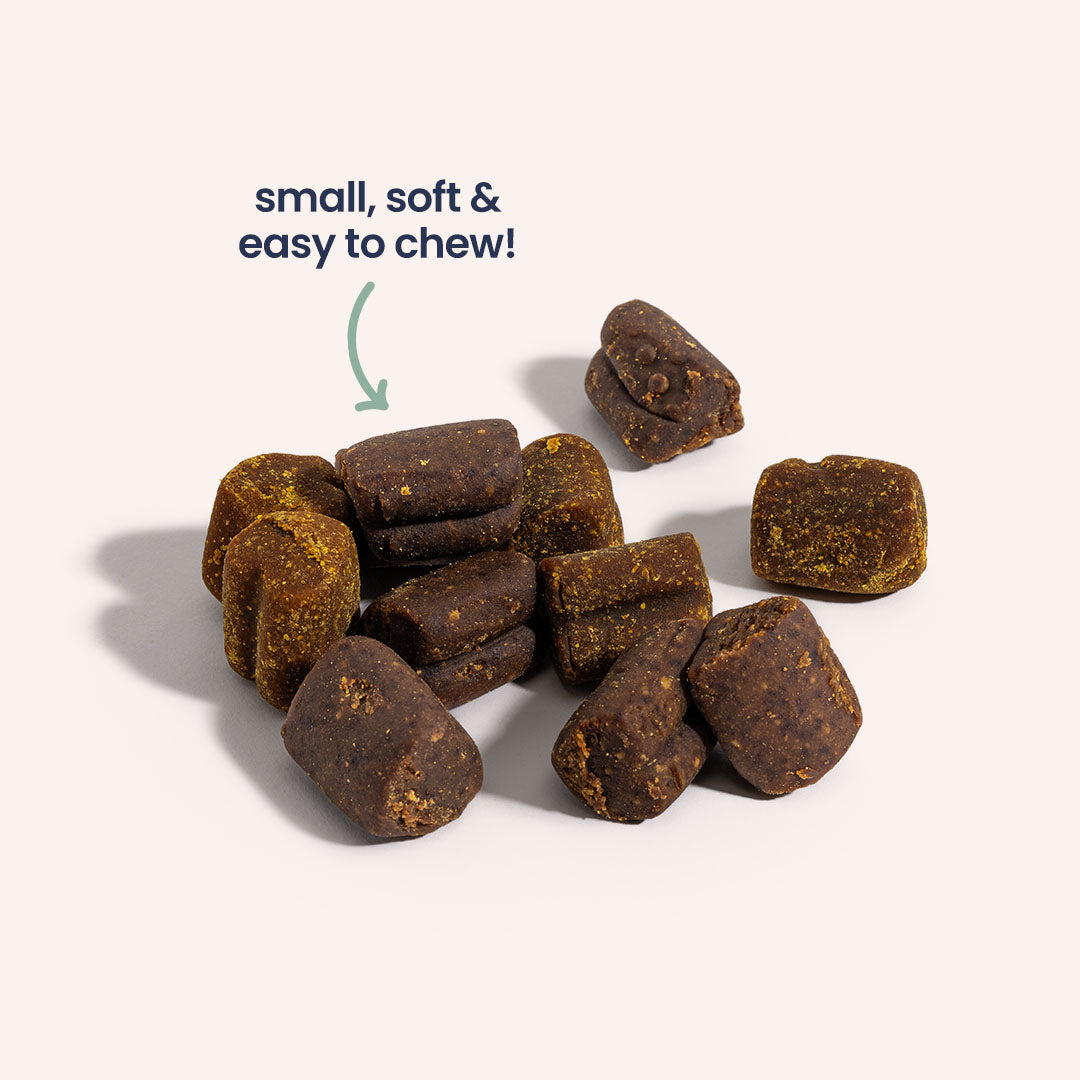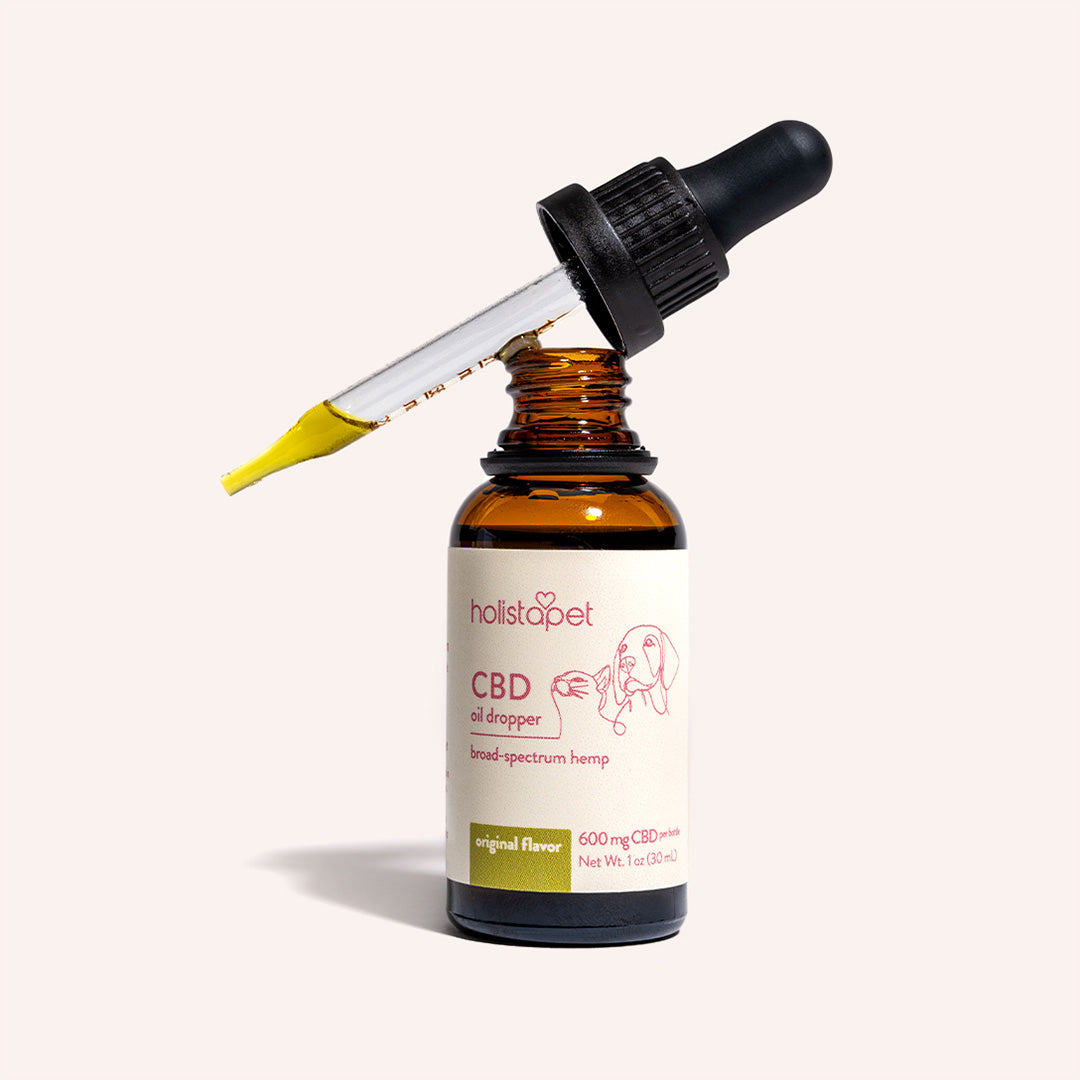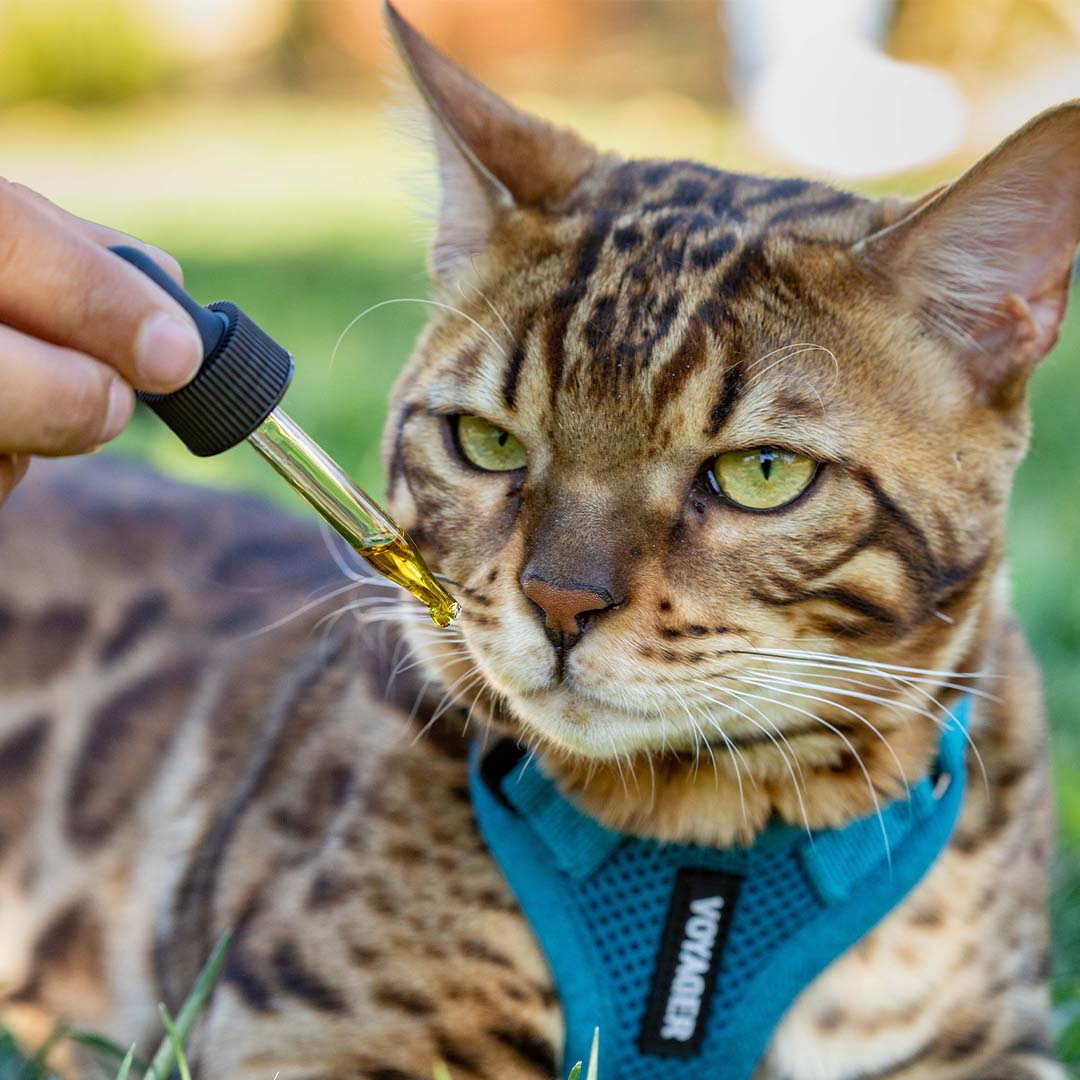The Oxford Dictionary defines the word zoomies as "A sudden burst of frenetic energy in which an animal runs to and from." That's right, over-excited dogs are so common that the Oxford Dictionary needed a word for it. If your pet has the zoomies, you may be wondering how to calm an over-excited dog for yourself!
We all love an energetic and happy puppy, but what happens if the dog becomes overwhelmed? Broken furniture, bathroom accidents, and excessive barking can stem from excited behavior. To make sure your pet stays gleeful but not overly excited, we put together this guide to help you calm down any puppy or dog!
Can Dogs Get Too Excited?
Yes, dogs can get too excited. Often, excess energy is due to a lack of exercise. However, additional causes include a lack of socialization, overstimulation, stress, or conditioned behavior.
The general sign of an overly excited dog is if it acts "wild." This means that the dog's actions lack control; it ignores your commands or forgets its training.
Behaviors associated with wild excitement include:
- Jumping (in the air or on someone)
- Barking
- Whining
- Running around the house, especially in repeated patterns
- Reduced bodily control
- Urination
- Chewing or gnawing
The differences between a happy and an over-excited dog can initially be difficult to spot. This is because symptoms like jumping and running around are also signs of a happy dog. You'll need to pay attention to your dog's body language so that you know when your pup is acting abnormally.

Is It Normal for Dogs to Get Too Excited?
It is perfectly normal for a dog to get too excited! Like any other emotion, excitement is a spectrum that can range from mild tail-wagging to excessive barking and carpet-peeing. If you come home to torn-up magazines, shredded toilet paper, and chewed-up furniture, something may be wrong.
How do we know when a dog gets overly excited? After all, some canines may rip up magazines on their most mentally healthy days, so when is more action needed? Let's take a look at normal vs. excessive excitement in our canines.
Normal Vs. Excessive Excitement
Keep in mind that each dog shows its emotions uniquely, and what may qualify as over-excitement for one pooch might be business-as-usual for another furry friend. Make sure your dog gets plenty of exercise, a healthy diet, and opportunities to socialize so that you can take note of calm behavior.
Sometimes, excessive excitement is fairly obvious. For example, a dog spinning in circles before playtime is usually normal behavior. On the other hand, if you offer playtime to a dog and it won't stop aggressively jumping on you, this could mean the dog is too excited!
The best way to determine whether your dog's behavior is normal or overly excited is by paying attention to which scenarios trigger its energy. For example, if your pet constantly pulls at its leash during a walk, something in the area may be upsetting it.
Reasons Dog Might Get Over Excited
Over excitement in dogs can be due to various reasons. The most common cause of excess energy is a lack of exercise. The animal is gaining energy from its food but has no exercise for release, so it builds up until the dog releases the energy in a burst of zoomies.
As mentioned earlier, common reasons for an over-excited pup include:
- Not enough socialization
- Overstimulation
- Stress
- Conditioned behavior
By default, dogs without proper socialization live in small worlds without choice. This can lead to fear, shyness, aggression, and a lack of general social behavior cues that dogs need to live healthy lives.
Conditioned behavior means that the dog has been trained to think of its abundant energy as a good thing. This is common, so don't feel bad if you've unknowingly reinforced this behavior in your furry friend. When they're puppies, we often reward over excitement with praise, hugs, and kisses.
Your canine could also be reacting to your energy. Dogs are extremely empathetic animals who often mimic the emotions their owners feel. If your dog's behavior seems overly energetic, it could be stress-induced due to your pet's empathy.
How to Calm an Over Excited Dog
Excitable dogs may be exhausting to be around, but the good news is there are several techniques you can use to calm your pet. It's important to soothe an over-excited animal because they can damage property, frighten someone who has a fear of dogs, and potentially injure a small breed or child.
When you teach your dog to calm down, you'll need time and patience. Make sure your pooch understands basic behavior commands so that you're able to keep training fun yet disciplined. You can calm your dog using methods like CBD, obedience training, and positive reinforcement.

Can CBD Help Calm an Over Excited Dog?
Yes! Cannabidiol (CBD) can help calm an over-excited dog by soothing its body and promoting a feeling of tranquility. Use some tasty CBD dog treats when you train your pooch, or add some cannabidiol-infused oil for dogs to their diet.
CBD achieves its effects by interacting with cannabinoid receptors in your dog's body. These receptors communicate with your pet's endocannabinoid system (ECS) and are present in nearly all mammals. The ECS regulates essential body functions surrounding your pet's susceptibility to over-stimulation.
Give your dog's ECS a helping hand with some CBD. This will help ease their mind, calming the "zoomies" and nervous or jittery behavior. If your dog's over-excitement is primarily an issue at night, CBD can also help them get to sleep.
Remain Calm Yourself
As we mentioned earlier, dogs are empathetic animals. They can sense your emotions, and excessively energetic canines are sometimes the result of overly excited dog owners. When training your furry friend, maintain calm and assertive energy.
This is especially important when you work with a puppy. Teach your dog from an early age that you are in control. The dog needs to understand that when you request calm behavior, it should listen immediately.
It is important to stay calm around an overly excited pet because we often inadvertently reward energetic behavior with an overly excited response. A pup will quickly and eagerly repeat any action that gets them positive attention. Instead, reward a calm dog with gentle petting or a CBD dog treat.
Practice Obedience Training
Obedience training is a healthy practice for every dog. It's a great bonding experience, reminds the canine who's in charge, and it provides some mental stimulation for your pet. If possible, give your furry friend obedience training from its formative puppy years.
Dogs appreciate assertiveness and routine in their training. If they bark or stop in the middle of a lesson, calmly but firmly correct the behavior before getting back to work. Get your pet on a regular schedule from the time it is a puppy so that it feels stable.
Training also doesn't always have to look like an episode of The Dog Whisperer. Your pup can start to learn calming techniques during play-time or on dog walks. One of the easiest ways to discourage your dog from over-excitement is to immediately endplay or a walk when the animal gets rowdy.
Wear Your Dog Out!
Energetic behaviors are usually a sign of one thing: a lot of energy! Put this liveliness to good use by giving your pet plenty of opportunities for exercise. This will wear the dog out, mentally stimulate it, and reduce the chance of some health conditions developing, such as obesity and joint disease.
Find some time each week to bring your furry friend to a dog park. Canines are pack animals, and most of them still crave socialization. Expose a puppy to new animals, people, and situations from a young age so that it can become desensitized to unfamiliar scenarios.
Of course, it's impossible to immediately exercise your pup every time they get the zoomies. Give your pooch a toy or let it hang out with another pet while you're away so that it doesn't build up excessive energy whenever you leave the house. Classic toys like Kong and new ones like Furbo will keep your dog busy for hours.
Reward Them for Good Behavior
Dogs thrive on praise and rewards! In fact, studies have shown that methods like yelling at your dog have negative short and long-term effects on the animal. Instead, use positive reinforcement whenever possible so that the puppy can learn what you approve of.
This is an excellent opportunity to use CBD dog treats, rewarding your dog each time it doesn't react to the doorbell or stays by your side on a walk. Bring a few dog treats on a walk to the dog park at the same time every day (while remaining calm yourself) to combine every technique we've covered!
Refrain from Encouraging the Excitement
Everybody loves a happy puppy, but a young pup’s ecstatic behavior might be less charming for a person or an older dog. We have to be cautious of encouraging excitable behavior in a pup (even if it's adorable) so that it does not become rambunctious in its later years.
Though, if we're supposed to use positive reinforcement on our furry friends, how do we discourage unwanted behavior? You can use negative reinforcement techniques, which may sound a bit harsher than they actually are.
Some people assume that "negative reinforcement" training methods refer to things like yelling or time-out. The term actually refers to techniques like blocking, redirection, and leash corrections. Negative reinforcement can be a helpful and sometimes even necessary method.
Provide Scents for Distraction
Dogs of every breed have incredible noses. If the difference between a dog's sense of smell and our own were compared to vision, canines would be able to see 3,000 miles for every 1/3 of a mile we could see! You can engage this powerful sense of smell to distract your pet from overly excited behavior.
Scents like lavender and vanilla have been shown to provide relaxing and calming effects in dogs. Decreased blood pressure, heart rate, and temperature have all been associated with lavender oil in particular. Make sure your pet does not have any allergies to these scents before using them.

Related Post: Valerian Root for Dogs - Keeps Pets Peaceful
Should I Go to the Vet for an Over Excited Dog?
Mild signs of excitement such as zoomies or jumping may not require an immediate trip to the vet, but if the behaviors become excessive, you'll need to seek out a professional. If you can't leave your home without the dog tearing up the house, take your pup to the vet or a behavioral specialist.
More serious excitable behavior like chewing on furniture or frequent house-urination needs closer attention. This is because gnawing and bathroom accidents could be symptoms of underlying health issues.
You know your furry friend's needs better than anyone else. Trust your instincts, and if you notice behavior that doesn't seem normal for your pet, play it safe and take them to the veterinarian.
Final Thoughts - How to Calm an Over Excited Dog
Even the best-behaved dogs can get too excited every once in a while. Start experimenting with some of our techniques for calm behavior, and try combining methods that work. Stay calm, start training when your pet is still a puppy, and use positive reinforcement to ensure your canine can unleash its energy at the right times! And, for more tips about how to properly care for your dog check out this page.
Next Read: HOW TO STOP A DOG FROM NIPPING WHEN EXCITED [CAUSES + SOLUTIONS]








![Probiotics For Dogs [Soft Chews]](http://www.holistapet.com/cdn/shop/files/Probiotic-Infographic-1_472d7a29-e30c-435a-9638-1365d8c3a9f9.jpg?v=1725384841&width=104)
















![Is CBD Safe For Dogs? [Comparing The Benefits & Side Effects]](http://www.holistapet.com/cdn/shop/articles/232.jpg?v=1716830792&width=500)













Leave a comment
This site is protected by hCaptcha and the hCaptcha Privacy Policy and Terms of Service apply.